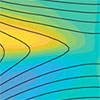 A puzzling process called magnetic reconnection triggers explosive phenomena throughout the universe, creating solar flares and space storms that can take down mobile phone service and electrical power grids. Now scientists have detailed a roadmap for untangling a key aspect of this puzzle that could deepen insight into the workings of the cosmos.
A puzzling process called magnetic reconnection triggers explosive phenomena throughout the universe, creating solar flares and space storms that can take down mobile phone service and electrical power grids. Now scientists have detailed a roadmap for untangling a key aspect of this puzzle that could deepen insight into the workings of the cosmos.
Apr 22nd, 2022
Read more
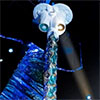 Researchers introduce an imaging X-ray polarimetry mission that enables new measurements of cosmic X-ray sources.
Researchers introduce an imaging X-ray polarimetry mission that enables new measurements of cosmic X-ray sources.
Apr 22nd, 2022
Read more
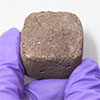 Researchers have developed a sustainable method for making bricks out of Martian soil.
Researchers have developed a sustainable method for making bricks out of Martian soil.
Apr 20th, 2022
Read more
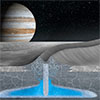 Ice-penetrating radar data from Greenland suggests that shallow water pockets may be common within Europa's ice shell, increasing the potential habitability of the Jovian moon's ice shell.
Ice-penetrating radar data from Greenland suggests that shallow water pockets may be common within Europa's ice shell, increasing the potential habitability of the Jovian moon's ice shell.
Apr 20th, 2022
Read more
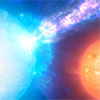 Astronomers have discovered a new kind of stellar explosion that could be commonplace in the universe and may change our understanding of how eruptions in stars occur.
Astronomers have discovered a new kind of stellar explosion that could be commonplace in the universe and may change our understanding of how eruptions in stars occur.
Apr 20th, 2022
Read more
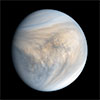 If not for the soupy, fast-moving atmosphere on Venus would likely not rotate. Instead, Venus would be locked in place, always facing the sun the way the same side of the moon always faces Earth.
If not for the soupy, fast-moving atmosphere on Venus would likely not rotate. Instead, Venus would be locked in place, always facing the sun the way the same side of the moon always faces Earth.
Apr 20th, 2022
Read more
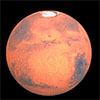 Scientists have developed an improved model for planet-wide groundwater flow prediction on Mars that is not only more accurate but more elegant too.
Scientists have developed an improved model for planet-wide groundwater flow prediction on Mars that is not only more accurate but more elegant too.
Apr 20th, 2022
Read more
 Study shows new way dunes can form on varied celestial surfaces.
Study shows new way dunes can form on varied celestial surfaces.
Apr 19th, 2022
Read more
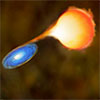 Astronomers have found a slimmer type of red giant star for the first time. These stars have undergone dramatic weight loss, possibly due to a greedy companion. The discovery is an important step forward to understanding the life of stars in the Milky Way.
Astronomers have found a slimmer type of red giant star for the first time. These stars have undergone dramatic weight loss, possibly due to a greedy companion. The discovery is an important step forward to understanding the life of stars in the Milky Way.
Apr 14th, 2022
Read more
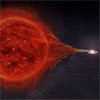 The MAGIC telescopes have observed the nova RS Ophiuchi shining brightly in gamma rays at extremely high energy. The Gamma rays emanate from protons that are accelerated to very high energies in the shock front following the explosion. This suggests that novae are also a source of the ubiquitous cosmic radiation in the universe which consists mainly of protons rich in energy, which race through space at almost the speed of light.
The MAGIC telescopes have observed the nova RS Ophiuchi shining brightly in gamma rays at extremely high energy. The Gamma rays emanate from protons that are accelerated to very high energies in the shock front following the explosion. This suggests that novae are also a source of the ubiquitous cosmic radiation in the universe which consists mainly of protons rich in energy, which race through space at almost the speed of light.
Apr 14th, 2022
Read more
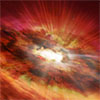 Astronomers have identified a rapidly growing black hole in the early universe that is considered a crucial 'missing link' between young star-forming galaxies and the first supermassive black holes.
Astronomers have identified a rapidly growing black hole in the early universe that is considered a crucial 'missing link' between young star-forming galaxies and the first supermassive black holes.
Apr 13th, 2022
Read more
 The nucleus is about 50 times larger than found at the heart of most known comets. Its mass is estimated to be a staggering 500 trillion tons, a hundred thousand times greater than the mass of a typical comet found much closer to the Sun.
The nucleus is about 50 times larger than found at the heart of most known comets. Its mass is estimated to be a staggering 500 trillion tons, a hundred thousand times greater than the mass of a typical comet found much closer to the Sun.
Apr 12th, 2022
Read more
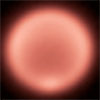 An international team of astronomers have used ground-based telescopes, including the European Southern Observatory's Very Large Telescope, to track Neptune's atmospheric temperatures over a 17-year period. They found a surprising drop in Neptune's global temperatures followed by a dramatic warming at its south pole.
An international team of astronomers have used ground-based telescopes, including the European Southern Observatory's Very Large Telescope, to track Neptune's atmospheric temperatures over a 17-year period. They found a surprising drop in Neptune's global temperatures followed by a dramatic warming at its south pole.
Apr 11th, 2022
Read more
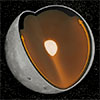 New research shows how the impact that created the Moon's South Pole - Aitken basin is linked to the stark contrast in composition and appearance between the two sides of the Moon.
New research shows how the impact that created the Moon's South Pole - Aitken basin is linked to the stark contrast in composition and appearance between the two sides of the Moon.
Apr 8th, 2022
Read more
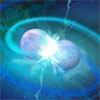 While normal stars have surfaces composed of hydrogen and helium, the newly discovered stars have their surfaces covered with carbon and oxygen, the ashes of He-burning - a very exotic composition for a star. The situation becomes more puzzling because the new stars have temperatures and radii that indicate they are still burning helium in their cores.
While normal stars have surfaces composed of hydrogen and helium, the newly discovered stars have their surfaces covered with carbon and oxygen, the ashes of He-burning - a very exotic composition for a star. The situation becomes more puzzling because the new stars have temperatures and radii that indicate they are still burning helium in their cores.
Apr 8th, 2022
Read more
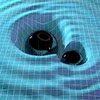 Astrophysicists re-examined LIGO-Virgo's O3a data and found 10 additional black hole mergers, all outside the detection threshold of the original analysis. The new mergers hint at exotic astrophysical scenarios that, for now, are only possible to study using gravitational wave astronomy.
Astrophysicists re-examined LIGO-Virgo's O3a data and found 10 additional black hole mergers, all outside the detection threshold of the original analysis. The new mergers hint at exotic astrophysical scenarios that, for now, are only possible to study using gravitational wave astronomy.
Apr 8th, 2022
Read more
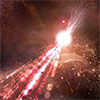 Scientists show that using gamma rays instead of radio waves yields a clearer view to the pulsars and provides an independent and complementary way to detect gravitational waves.
Scientists show that using gamma rays instead of radio waves yields a clearer view to the pulsars and provides an independent and complementary way to detect gravitational waves.
Apr 7th, 2022
Read more
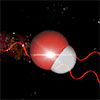 The record-breaking find is the most distant megamaser of its kind ever detected, at about five billion light years from Earth.
The record-breaking find is the most distant megamaser of its kind ever detected, at about five billion light years from Earth.
Apr 7th, 2022
Read more
 A puzzling process called magnetic reconnection triggers explosive phenomena throughout the universe, creating solar flares and space storms that can take down mobile phone service and electrical power grids. Now scientists have detailed a roadmap for untangling a key aspect of this puzzle that could deepen insight into the workings of the cosmos.
A puzzling process called magnetic reconnection triggers explosive phenomena throughout the universe, creating solar flares and space storms that can take down mobile phone service and electrical power grids. Now scientists have detailed a roadmap for untangling a key aspect of this puzzle that could deepen insight into the workings of the cosmos.
 Subscribe to our Space Exploration News feed
Subscribe to our Space Exploration News feed















